10 Great Places to Retire for Your Health
These cities are budget-friendly but close to first-class health care for retirees.

Profit and prosper with the best of Kiplinger's advice on investing, taxes, retirement, personal finance and much more. Delivered daily. Enter your email in the box and click Sign Me Up.
You are now subscribed
Your newsletter sign-up was successful
Want to add more newsletters?

Delivered daily
Kiplinger Today
Profit and prosper with the best of Kiplinger's advice on investing, taxes, retirement, personal finance and much more delivered daily. Smart money moves start here.

Sent five days a week
Kiplinger A Step Ahead
Get practical help to make better financial decisions in your everyday life, from spending to savings on top deals.

Delivered daily
Kiplinger Closing Bell
Get today's biggest financial and investing headlines delivered to your inbox every day the U.S. stock market is open.

Sent twice a week
Kiplinger Adviser Intel
Financial pros across the country share best practices and fresh tactics to preserve and grow your wealth.

Delivered weekly
Kiplinger Tax Tips
Trim your federal and state tax bills with practical tax-planning and tax-cutting strategies.

Sent twice a week
Kiplinger Retirement Tips
Your twice-a-week guide to planning and enjoying a financially secure and richly rewarding retirement

Sent bimonthly.
Kiplinger Adviser Angle
Insights for advisers, wealth managers and other financial professionals.

Sent twice a week
Kiplinger Investing Weekly
Your twice-a-week roundup of promising stocks, funds, companies and industries you should consider, ones you should avoid, and why.

Sent weekly for six weeks
Kiplinger Invest for Retirement
Your step-by-step six-part series on how to invest for retirement, from devising a successful strategy to exactly which investments to choose.
Retirees who want to move when they’re ready to quit their day jobs face a conundrum: They’d like to live in a slower-paced, budget-friendly small or midsize city, but they don’t want to travel for an hour or two to get first-class health care.
These cities solve the problem. All have at least one hospital that has received five stars — the highest rating — from the Centers for Medicare and Medicaid Services (based on up to 57 measures, ranging from infection rates to patient satisfaction surveys). Most are located in states that exempt retirement income from state taxes (or have low tax rates) and offer homes that are affordable, whether you’re looking to buy or rent. Major airports aren’t far away. And although some of our cities are small, they all offer a wealth of cultural amenities and plenty of ways to stay in shape and commune with the great outdoors.
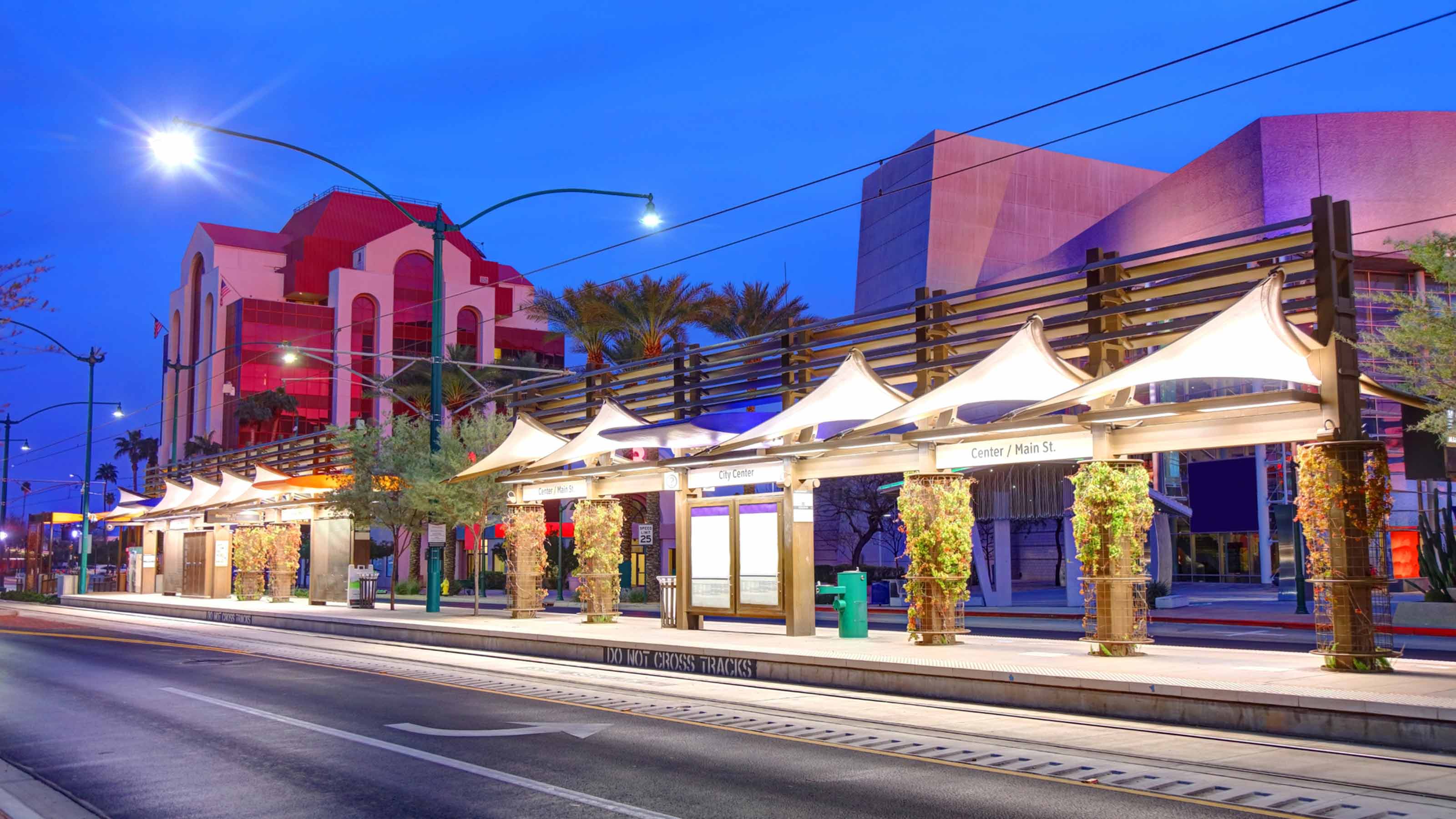
Mesa, Arizona
- Population: 509,000
- What $300,000 will buy: 2-bedroom, 1-bath house with an updated kitchen and spacious backyard
- Best place to exercise: Superstition Mountains
- 5-star hospital: Banner Heart Hospital
Arizona is known for its sunshine and golf courses, and Mesa has plenty of both. But the city has much more to attract retirees, such as its proximity to top-rated hospitals, a cost of living that’s lower than the national average and a range of activities for lovers of nature, sports and the arts.
Golfers, for instance, can choose from more than 200 courses in the metro area. And the weather is favorable most of the year for many other outdoor activities. Those who prefer spectator sports won’t be disappointed. During spring training, baseball fans can check out the prospects of the Chicago Cubs at Mesa’s Sloan Park and the Oakland Athletics at Hohokam Stadium. Mesa’s downtown is anchored by the Mesa Arts Center, with four performance theaters, a contemporary art museum and about 1,000 art classes a year.
You can drive through Mesa and quickly find yourself in Phoenix or Scottsdale without noticing you’ve crossed city limits. Some locals say they like the ease with which they can get to other cities’ attractions, such as high-end shopping in Scottsdale to the north or college sports at Arizona State University in Tempe to the west.
Mesa also has many 55-plus communities, says real estate agent Irene Hammond. One of the nation’s fastest-growing communities — for all ages — is Eastmark in southeast Mesa. One section, called Encore at Eastmark, is designed for adults age 55 and older, with the base price of single-family homes ranging from about $400,000 to $700,000. Retirees seeking to rent can find two-bedroom condos near downtown Mesa for $1,300 to $3,000 a month.
Area residents have many health care options. Mesa’s Banner Heart Hospital, a 111-bed heart specialty facility, received Medicare’s top five-star rating.
Kiplinger gives Arizona a friendly grade on taxes for retirees. Social Security benefits aren’t taxed, but withdrawals from 401(k)s and IRAs are — although at a low rate.
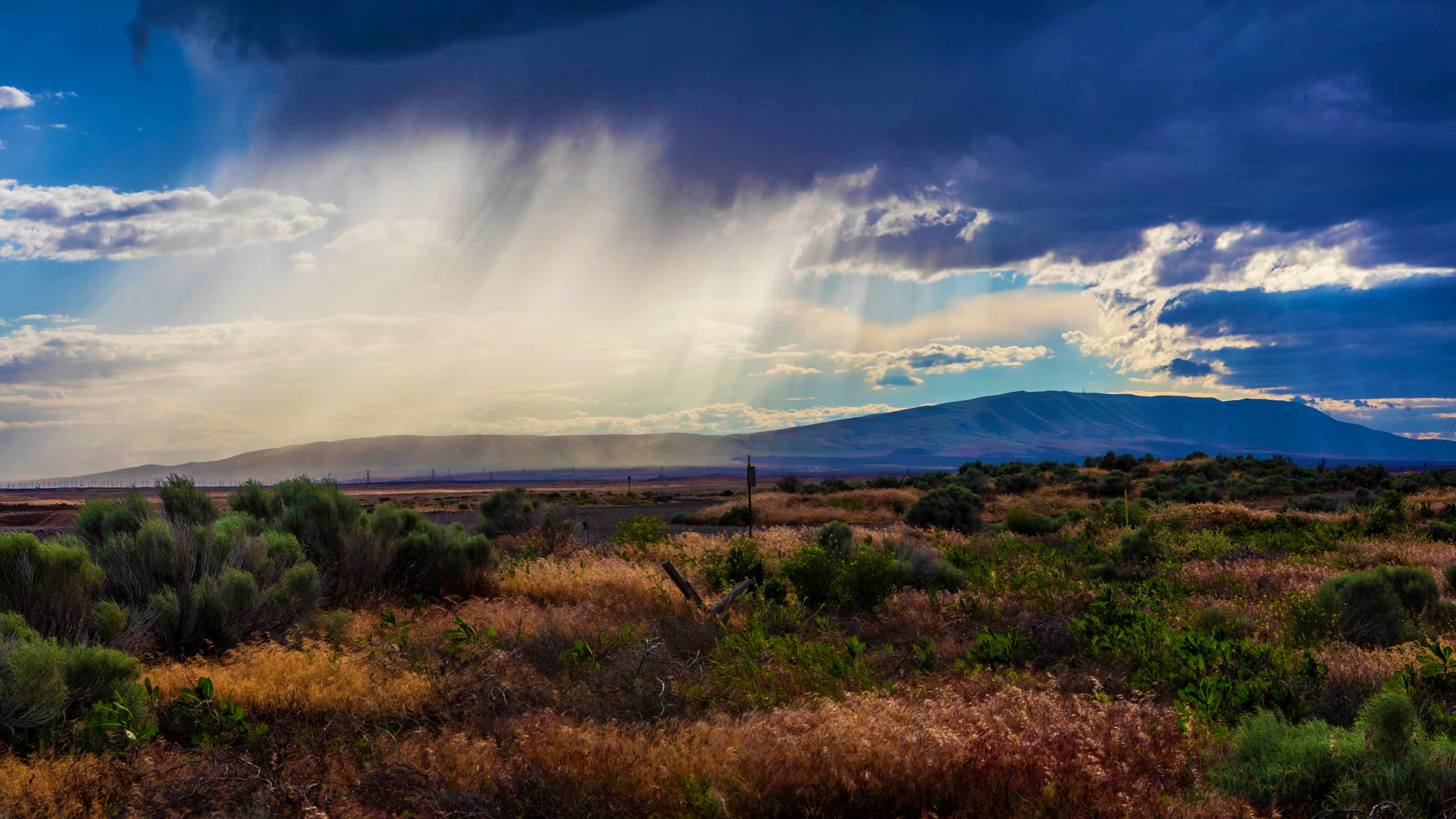
Richland, Wash.
- Population: 56,200
- What $300,000 will buy: 3-bedroom, 2.5-bath, 1,900-square-foot home with a master suite and a two-car garage
- Best place to exercise: Sacagawea Heritage Trail
- 5-star hospital: Kadlec Regional Medical Center
With more than 300 days of sunshine and less than 8 inches of rain annually, Richland attracts plenty of retirees from soggy Seattle, which is a three-and-a-half-hour drive to the northwest. The climate has given rise to a burgeoning wine industry, now joined by breweries, distilleries and cideries.
Located at the confluence of the Columbia and Yakima rivers, Richland boomed during World War II as thousands of workers came to produce plutonium for the Manhattan Project and remains a center of scientific research.
Outdoor recreation is big. The Columbia River is a playground for all sorts of aquatic activities. The Sacagawea Heritage Trail, named for the lone woman on the Lewis and Clark expedition, provides 23 miles of paved loop trail for walking and biking along the Columbia.
Locals enjoy the Parkway shopping area, home to a farmers-and-artisans market in the summer. Nearby is John Dam Plaza, where the Community Stage, an outdoor performance venue, hosts local performing arts groups, movies and a summer concert series with live music, food vendors and—no surprise—a beer and wine garden.
The median home price in Richland is $310,000. Retirees from Seattle who have sold a home there can often pay cash to get a nice place near things they want to do. For many, that means a home next to the river or in a golf-course community, says real estate agent Jeff Smart. You can rent a two-bedroom apartment or condo for about $1,100 to $1,200 a month.
The region is the health care hub of eastern Washington, with three large hospital systems: Kadlec Regional Medical Center in Richland, Lourdes Health in Pasco and Trios Health in Kennewick. Kadlec has an open-heart surgery and interventional cardiology program, an intensive-care unit, a neuroscience center, and health care providers in numerous specialties.
Washington has no state income tax, so retirees don’t have to worry about state taxes on retirement income, pensions or Social Security benefits. The state has an estate tax on estates valued at more than $2.19 million.
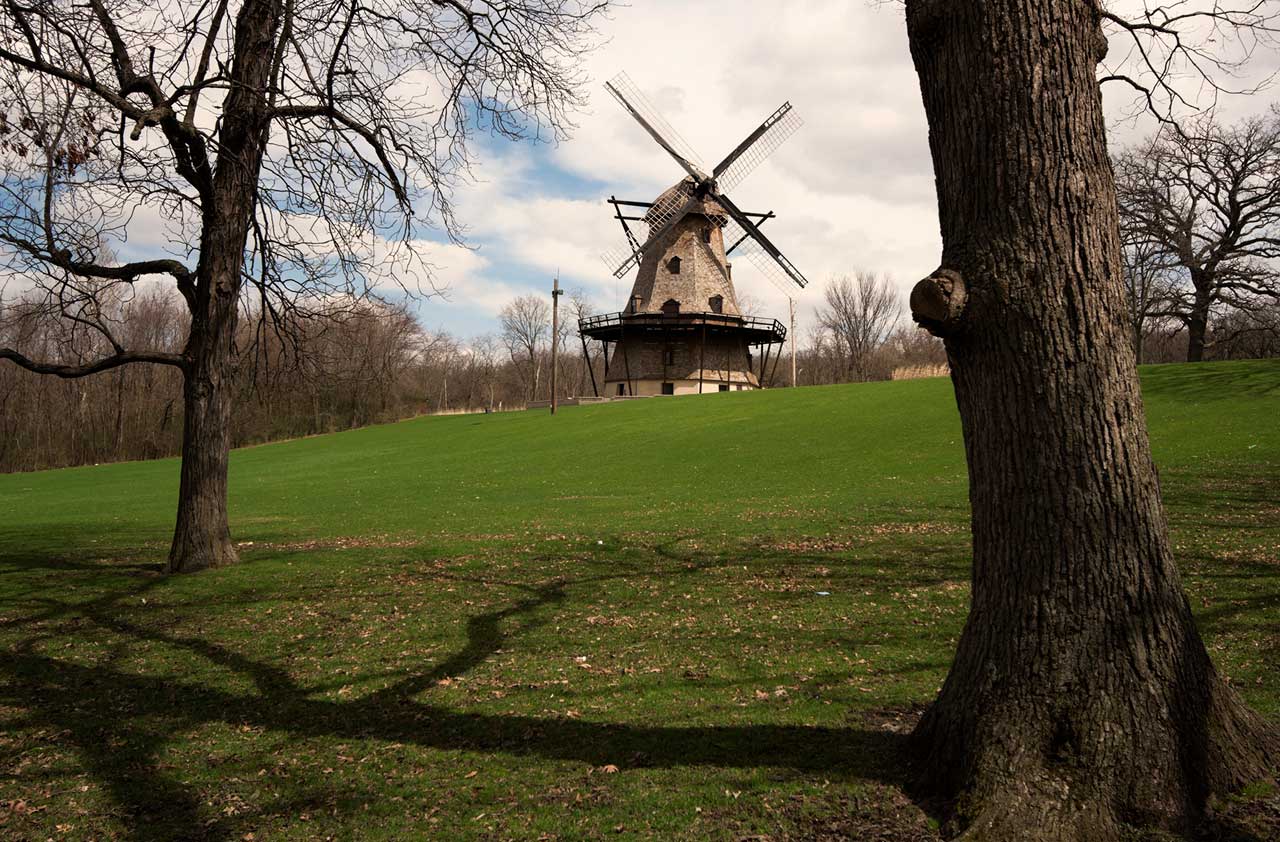
Geneva, Illinois
- Population: 21,000
- What $300,000 will buy: 2-bedroom, 1-bath, cottage-style condo in Chesapeake Commons
- Best place to exercise: Fox River Trail
- 5-star hospital: Northwestern Medicine Delnor Hospital
Geneva is only about 44 miles from Chicago, but please don’t call it a bedroom community. Located on the Fox River, Geneva is a destination in its own right, with plenty of cultural amenities for retirees seeking an urban vibe without the traffic. “We don’t define ourselves by our proximity to Chicago,” says Kevin Burns, mayor of Geneva since 2001. “We define ourselves as a unique community in the Midwest.”
For exercise, head to the Fox River Trail, which runs for 30 miles in Kane County and attracts bikers, joggers, walkers and, in the winter, cross-country skiers. The trail provides access to canoeing, fishing and the Tekakwitha Woods Forest Preserve & Nature Center.
While Chicago is home to some excellent health care facilities, Geneva residents don’t need to go that far to get quality heath care. Northwestern Medicine Delnor Hospital, an acute-care facility with 159 beds, boasts a state-of-the-art cancer center.
Twelve years ago, Burns and his partner, Aimee, purchased a one-level ranch home that’s within walking distance of downtown. His parents lived in a condo overlooking a golf course. But Burns acknowledges that the supply of retiree-friendly housing options is limited and often pricey.
Providing affordable housing for the growing population of retirees is one of the city’s biggest challenges, and though they did invest in development of attainable housing recently, there are still pressures on supply. Since the start of the COVID-19 pandemic, building permit requests "have gone through the roof," Burns told Kiplinger, showing that "people chose to stay and reinvest in what they have."
There are several retirement communities in Geneva, including an independent living community near Delnor Hospital, the Reserve of Geneva, which offers one- and two-bedroom condos for residents who are 55 and older. Monthly rents start at $2,000 a month for a studio suite.
Illinois exempts income from Social Security, retirement plans, and public and private pensions from state taxes. Property taxes are high, but residents 65 and older are eligible for a $5,000 reduction in their homes’ assessed value.
By Sandra Block
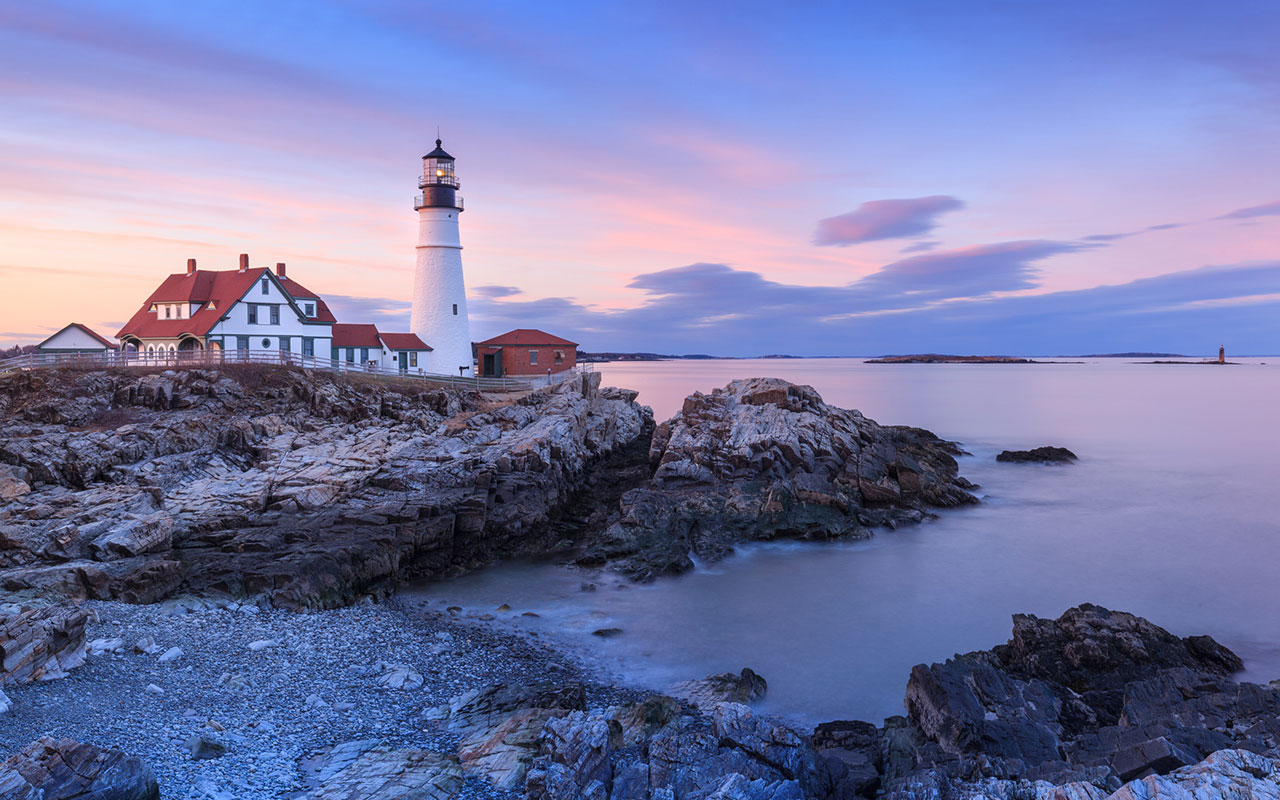
Portland, Maine
- Population: 66,900
- What $300,000 will buy: 2-bedroom, 1 bath, 1,143-square-foot condo
- Best place to exercise: Back Cove Trail
- 5-star hospitals: Maine Medical Center, Mercy Hospital
Located on a small peninsula in the Casco Bay, Portland offers city amenities with a small-town feel, says Harold Pachios, an 82-year-old lawyer who has lived in Portland most of his life. And while he can see the city changing right outside his office window, with new construction and cranes clouding his view, he says Portland is still safe and easy to get around.
The Old Port area offers a blend of history and practicality, with a mixture of boutiques and restaurants on cobblestone streets that run down to a working waterfront. The Portland Museum of Art and Maine College of Art anchor the arts district, along with other galleries that are within walking distance.
Maine Medical Center, which belongs to the MaineHealth network, boasts more than 600 beds. Mercy Hospital has 230 beds in three locations. At Mercy’s State Street and Fore River locations, all rooms are private. Services and specialties at both hospitals range from comprehensive cancer treatment to cardiac care to orthopedics.
Karen Jones, president of the Greater Portland Board of Realtors, says retirees who want to live close to downtown can expect to pay $600,000 or more for a newer luxury condo. Units in older buildings range from $350,000 to $500,000. If you’d rather rent, two-bedroom condos close to downtown go for about $2,600 a month.
Maine taxes are a mixed bag for retirees. Residents can deduct up to $10,000 in pension and retirement-account income from state taxes. But singles with taxable income of more than $50,000 and couples with income exceeding $100,100 pay the top tax rate of 7.15%.
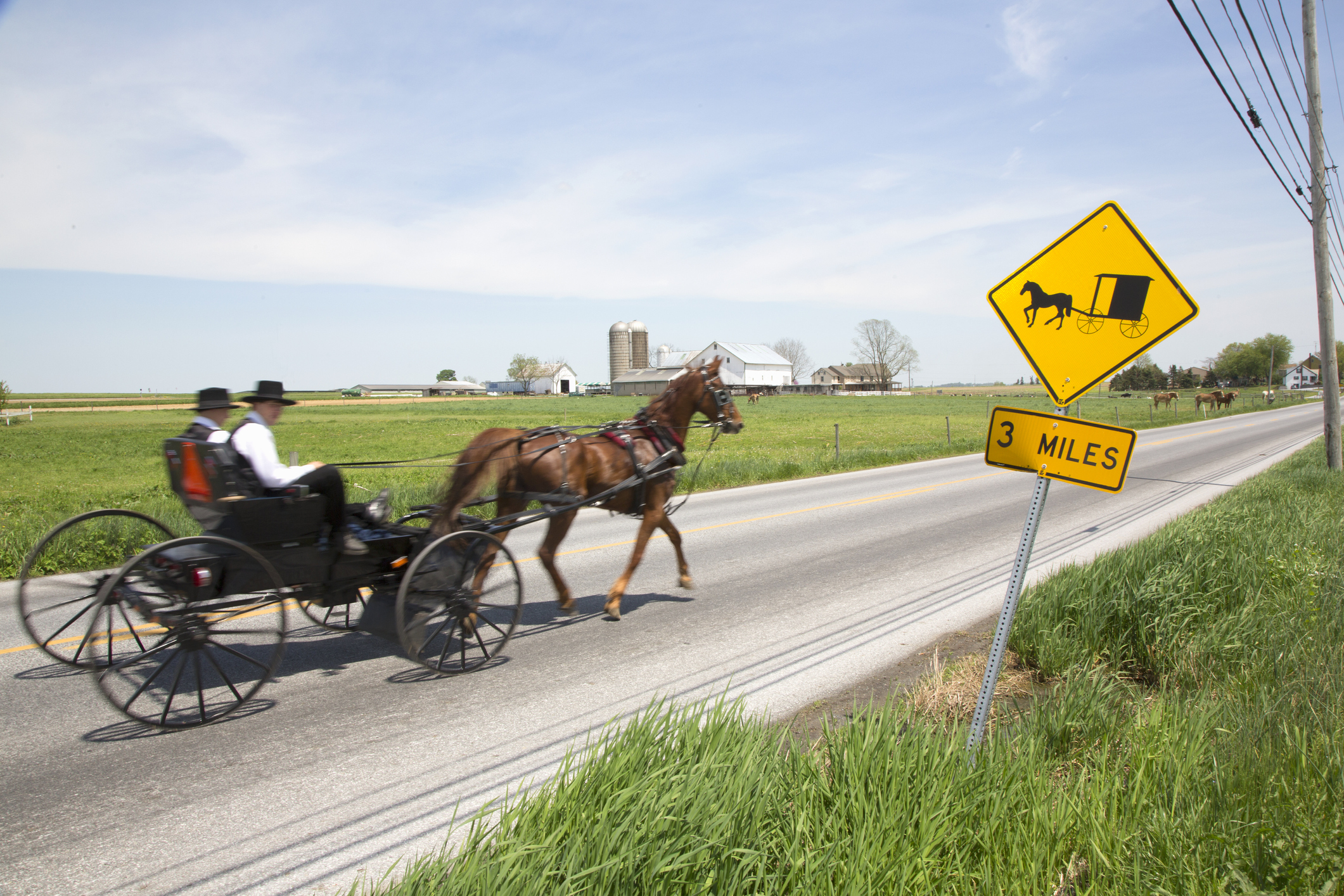
Lancaster City, Pa.
- Population: 57,500
- What $300,000 will buy: 3-bedroom, 2-bath townhouse
- Best place to exercise: Susquehanna River Water Trail
- 5-star hospital: Lancaster General Hospital
The Costco in Lancaster City has designated parking for horse-drawn buggies, a reminder that Lancaster County is home to the largest Amish community in the U.S. But while Lancaster offers an abundance of bucolic charm, it also provides plenty of urban amenities.
Over the past two decades, the city has revitalized. Franklin & Marshall College expanded, Penn Medicine built an anchor campus, and the city gained a baseball stadium and a convention center.
Downtown’s focal point is the Central Market, a grand, red-brick building where, three days a week, local farmers, bakers, butchers, flower growers and dairies sell their wares. From the market, it's an easy walk to boutiques, coffee shops, Gallery Row, the Fulton Theatre and the Ware Center for theater and other performing arts. Locals turn out for First Fridays, when galleries and other venues stay open late, and for Third Fridays, to hear music. Baseball fans can catch the Lancaster Barnstormers baseball team.
The county’s population is growing, as is suburban development. But to preserve the county’s verdant vistas, a big chunk of its rich land has been preserved with agricultural easements in perpetuity. Within 15 minutes’ drive of downtown, you can find yourself surrounded by rolling countryside dotted with huge farm homes, well-kept barns and farm stands.
The countryside attracts bicyclists, and the county has an expanding “rails to trails” network that both walkers and cyclists enjoy.
The inventory of homes for sale in the county is slim, particularly when it comes to the type popular among retirees — single-story homes with a primary suite — says real estate agent Jeff Peters. But housing is relatively affordable, especially for retirees who have sold a home in an expensive metro area. For about $300,000, you can get a two-bedroom condo downtown, a fully renovated rowhouse, or a single-story, two-bedroom home in a 55-plus community. .
The largest health care facility is Lancaster General Health, part of the University of Pennsylvania Health System. Pinnacle Health, in Lancaster and Lititz, is part of the University of Pittsburgh Medical System. Penn State Health is building a large outpatient facility in the county, and its flagship facility, the Milton S. Hershey Medical Center, is less than an hour away.
Pennsylvania offers retirees some of the most generous tax breaks in the U.S. Withdrawals from 401(k) plans, IRAs and other retirement accounts are state-tax-free. Social Security benefits and pensions are also excluded from taxes.
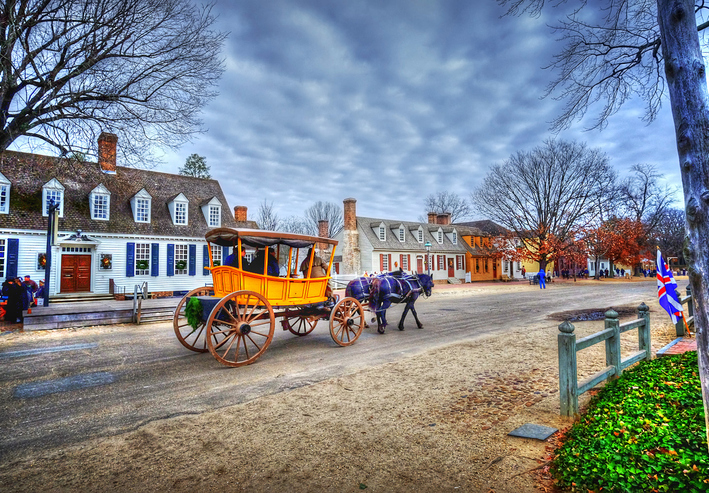
Williamsburg, Virginia
- Population: 15,600
- What $300,000 will buy: 2-bedroom, 2-bath townhome with open floorplan
- Best place to exercise: Virginia Capital Trail
- 5-star hospital: Sentara Williamsburg Regional Medical Center and Riverside Doctors' Hospital of Williamsburg
Mention Williamsburg and most people think of Colonial Williamsburg, where actors in period garb depict life in 18th-century Virginia under a broad array of towering trees. But Williamsburg is more than tricorn hats. The city of about 15,000 offers the ease of small-town living and, as home to William & Mary, the cultural activities of a college town. For a quick big-city fix or change of scenery, residents are only about an hour’s drive from Virginia Beach or Richmond, the state capital.
The city is dominated by Colonial Williamsburg and William & Mary, the nation’s second-oldest university, where residents age 60 and older can audit classes free. Art lovers can catch an exhibit at the Muscarelle Museum of Art or a performance by the theater and dance department.
You can take in free summer concerts weekly on the lawn outside a Colonial Williamsburg museum, or attend an arts-and-music festival along Prince George Street downtown. For exercise, hike one of the many trails or ride a bike along the scenic Capital Trail, a pedestrian-and-bike trail connecting Jamestown and Richmond.
Many retirees settle in one of three major amenity-filled golf course communities — Ford’s Colony, Governor’s Land or Kingsmill Resort, all in adjacent James City County, says Kimber Smith, president of the Williamsburg Area Association of Realtors. Single-family detached homes start at about $400,000, but some houses on the James River in Kingsmill and Governor’s Land can run $1 million to $3 million or even higher, Smith says. Retirees can also find condos and townhouses — including in the New Town development, just outside the city limits — ranging from about $250,000 to $600,000. Two- and three-bedroom rentals run from $1,200 to $4,500 a month.
Virginia is tax-friendly for retirees. The commonwealth doesn’t tax Social Security benefits, and residents 65 and older can deduct up to $12,000 per person in income.
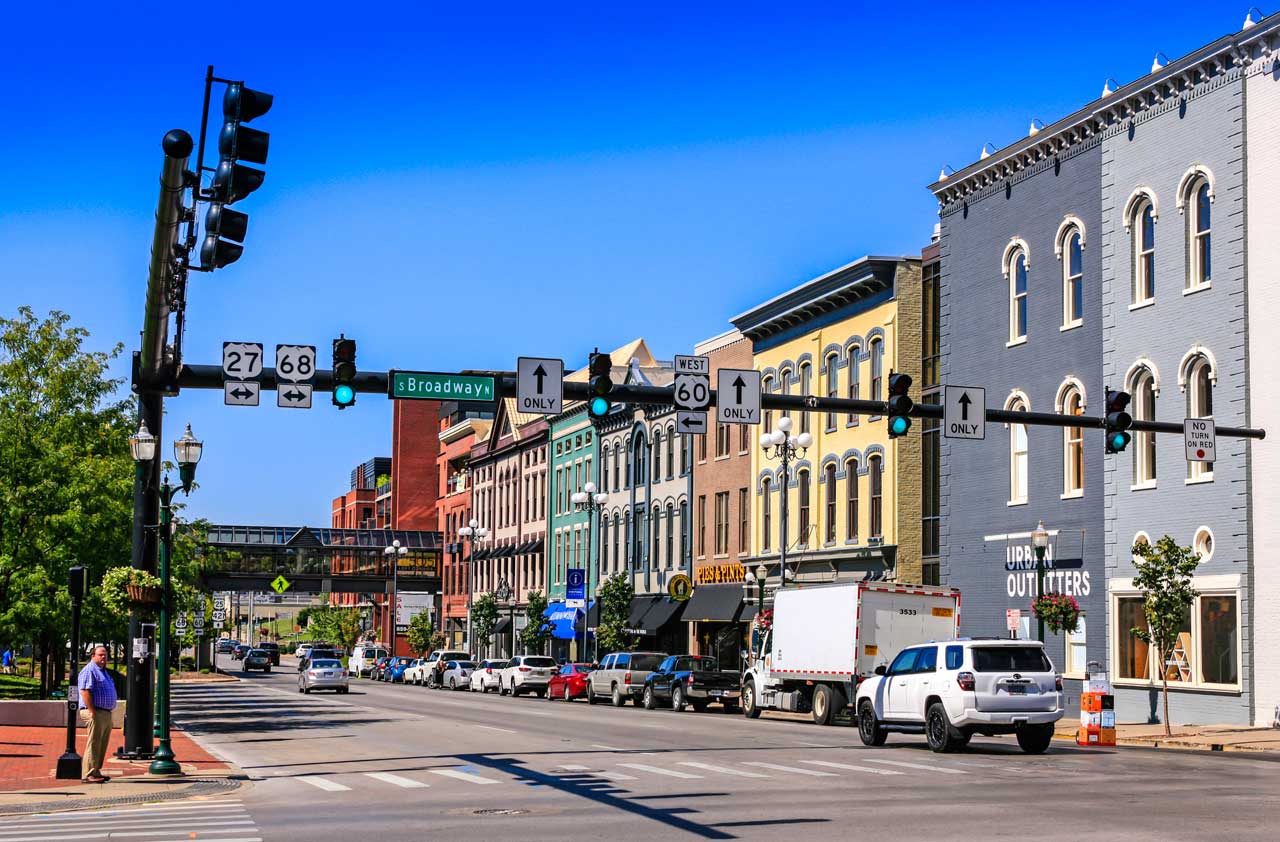
Lexington, Ky.
- Population: 322,000
- What $300,000 will buy: 1-bedroom, 1.5-bath, 984-square-foot penthouse condo with a view of downtown
- Best place to exercise: Raven Run Nature Sanctuary
- 5-star hospital: Baptist Health Lexington
Lexington is home to the University of Kentucky (where the Wildcats play) and Keeneland Race Track (where you can see thoroughbred horse racing). Its low taxes, low cost of living and affordable housing make it a great place to retire, too.
The city, in the heart of Bluegrass Country, is surrounded by horse farms. A visit to the Kentucky Horse Park ($20) gets you access to the International Museum of the Horse as well as American Saddlebred Museum. You’ll find locally owned boutiques at The Shops at Lexington Center, in the heart of the city.
Outdoor enthusiasts can get their fix at Jacobson Park, a 216-acre park in east Lexington, which has fishing and boat rentals. Another option south of the city is Raven Run Nature Sanctuary, a 734-acre park along the Kentucky River that has more than 10 miles of hiking trails.
Baptist Health Lexington, located a few miles south of the city center, is a 391-bed facility that employs specialists in heart and stroke care, cancer, orthopedics, and rehabilitation.
The median home price in Lexington is about $166,000, according to the National Association of Realtors. If you’re looking to rent rather than buy, $995 per month will get you a 1,200-square-foot downtown condo with three bedrooms and one bath.
Kentucky is one of Kiplinger’s top-10 tax-friendly states for retirees. It exempts Social Security benefits from state income taxes, plus up to $31,110 per person in retirement income.
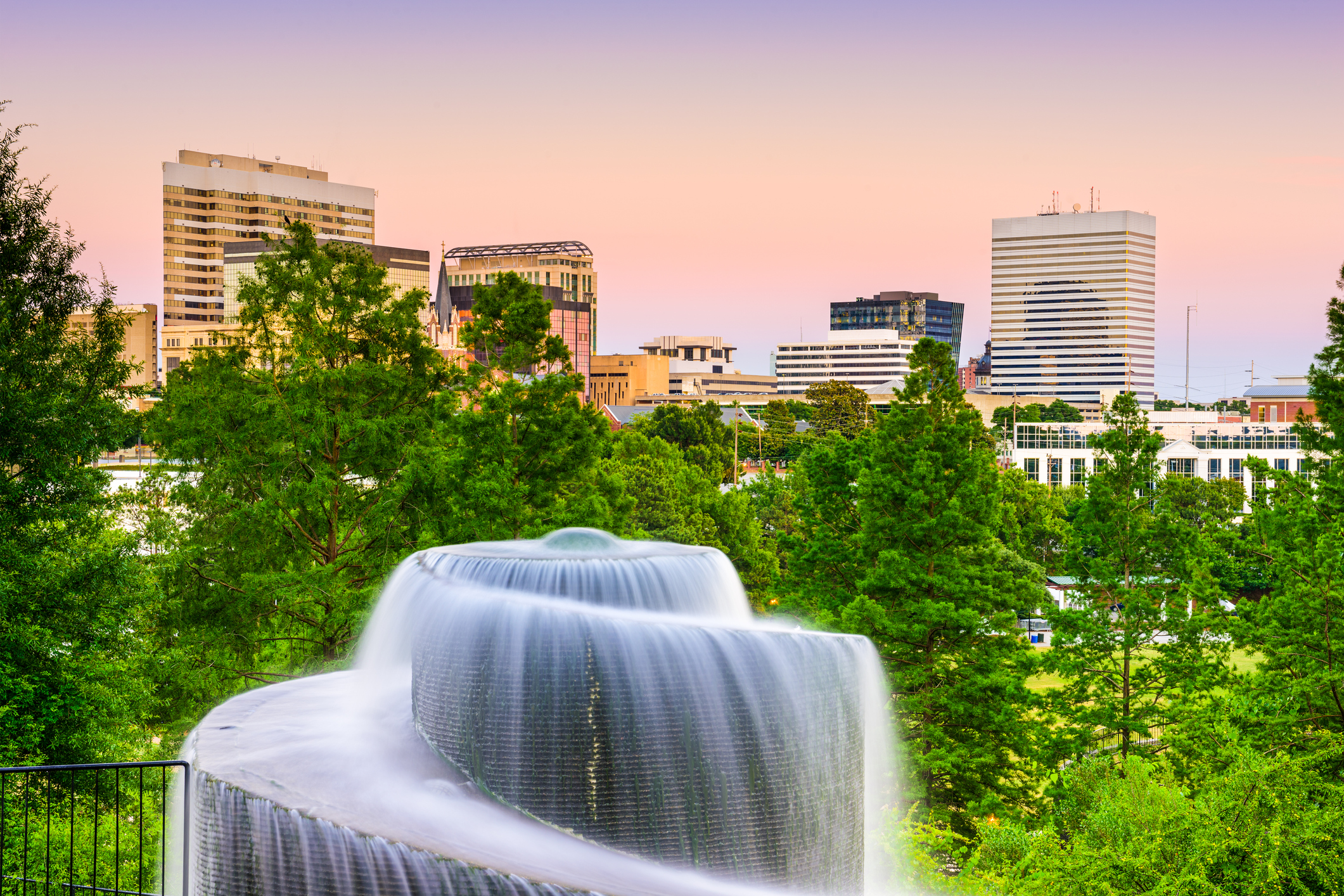
Columbia, S.C.
- Population: 133,100
- What $300,000 will buy: 3-bedroom, 3-bath, single-family home
- Best place to exercise: Riverfront Park
- 5-star hospital: Lexington Medical Center
While it’s known for its old-fashioned southern hospitality, Columbia is in the midst of an economic and cultural renaissance. Couple that with a below-average cost of living, affordable housing and low state taxes, and it’s no surprise that a growing number of retirees from the Northeast and Midwest are skipping the move farther south and choosing to live here.
Home to the state capital and the University of South Carolina, Columbia offers a ballet, a symphony orchestra and the Columbia Museum of Art. Sports fans can cheer USC’s Gamecocks football team at Williams-Brice Stadium, or watch the minor-league Fireflies play at the Spirit Communications ballpark. Columbia has three top-rated hospital systems, in addition to a Veterans Affairs hospital and a university medical research center.
Housing options range from homes near Lake Murray in West Columbia, where a four-bedroom, 2,400-square-foot house goes for about $235,000, to midrise condos at the trendy Vista quarter downtown, where a two-bedroom unit in a luxury building costs about $270,000. For retirees who would rather rent, two-bedroom townhouses and condos are available for about $1,000 to $1,500 a month.
Starting in 2019, residents age 55 and up can move in to the Merrill Gardens at BullStreet, a 196-unit apartment community located next to Spirit Communications ballpark. The 181-acre development will include a 20-acre park and the TownPark complex, with luxury townhomes priced at $467,000 and up.
South Carolina is tax-friendly for retirees. Social Security benefits aren’t taxed, and the state provides a generous deduction for other types of retirement income.
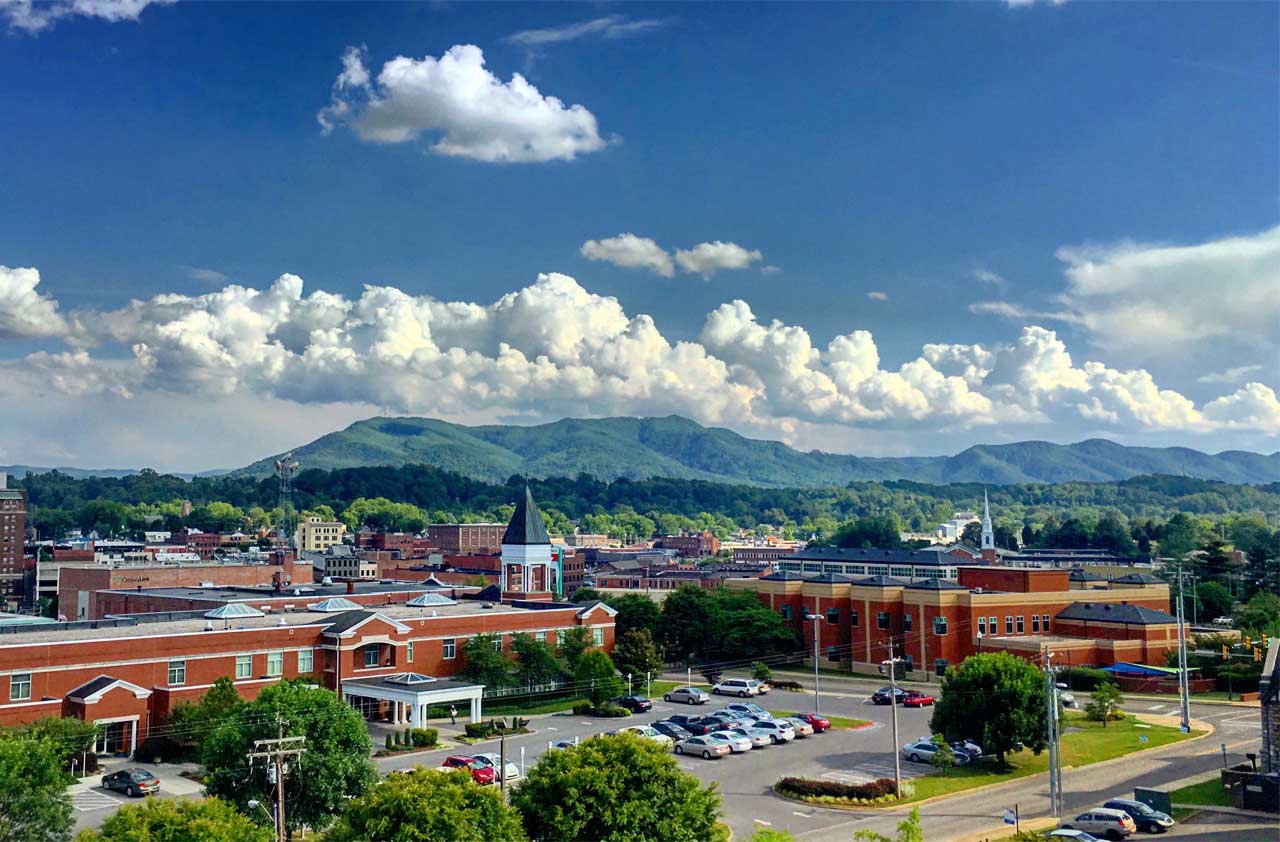
Johnson City, Tenn.
- Population: 66,400
- What $300,000 will buy: 3-bedroom, 2-bath, 1,500-square-foot home on Boone Lake with a dock
- Best place to exercise: Tweetsie Trail, a 10-mile rails-to-trail project
- 5-star hospital: Franklin Woods Community Hospital
Johnson City’s lively downtown, natural scenery and wealth of opportunities for hiking, biking, fishing, kayaking and walking make it an ideal location for active retirees.
Founded as a railroad town in the 1850s, Johnson City’s downtown merges cool renovations with historic charm. Restaurants, coffee shops, galleries, music venues and eclectic shops now fill revitalized 19th-century buildings in an easily walkable area. Old train depots have been transformed into restaurants and breweries, with the Yee-Haw Brewery and White Duck Taco Shop hosting festivals and live music on a spacious patio. Founders Park, in the heart of downtown, hosts live music throughout the summer, yoga, a farmers market and the popular two-day Blue Plum Music Festival.
Just blocks away is East Tennessee State University, where you can watch Division I sports and enjoy performances from the school’s famous bluegrass and country-music program. A 90,000-square-foot arts center will be completed in 2019. See future stars of the St. Louis Cardinals close-up when they get their start with the Johnson City Cardinals minor-league team.
You can bike, run or walk the Tweetsie Trail, a 10-mile rails-to-trail project that starts downtown. Or you can hike through 725 acres of dense forest at Buffalo Mountain Park, just 10 minutes from downtown, and look down on Johnson City from above.
The Ballad Health network runs several well-regarded hospitals in the area. The 445-bed Johnson City Medical Center, one of six Level 1 Trauma Centers in Tennessee, has received awards for its heart hospital and cancer center. Franklin Woods Community Hospital, an 80-bed hospital built in 2010, gets top ratings for patient satisfaction and for its native stone building.
The cost of living in Johnson City and the surrounding areas is low: You can rent a three-bedroom house in town for $1,300 or less, and the median home sales price is $170,000. Tennessee is very tax-friendly for retirees: It has no state income tax.
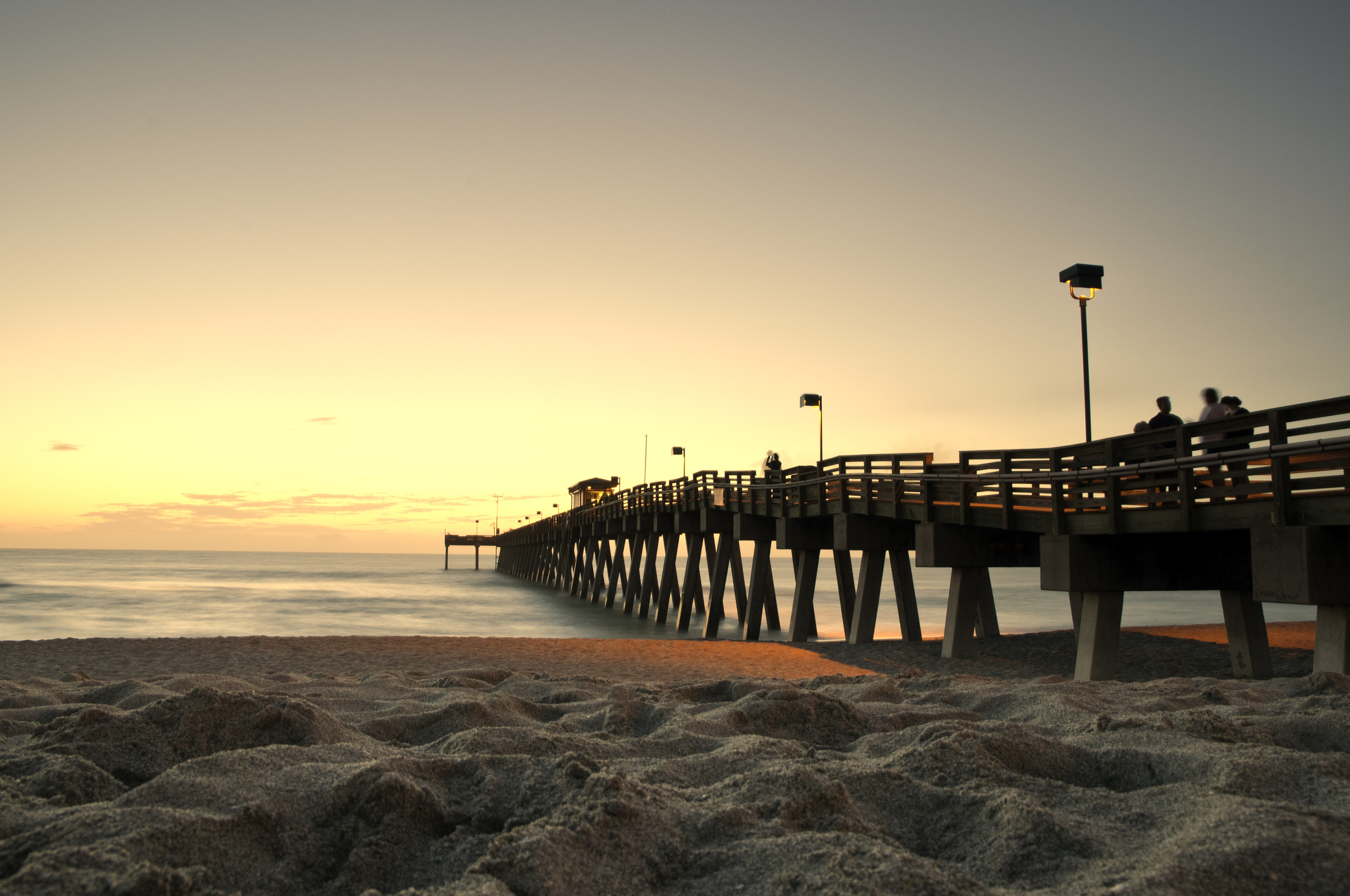
Venice, Fla.
- Population: 23,000
- What $300,000 will buy: 3-bedroom, 2-bath home with a lake view in a gated off-island community
- Best place to exercise: Venetian Waterway Park, an 8-plus-mile multi-use trail with water views
- 5-star hospitals: Sarasota Memorial Hospital, Doctors Hospital of Sarasota
Wander around Venice’s historic neighborhoods and you’ll notice two things: You’re never far from the water, and there’s bound to be a park no more than a few blocks away. As you head west, the wide, palm-tree-lined sidewalks give way to white-sand beaches and expansive water views. As the sun begins to set over the Gulf of Mexico, beach-goers gather for a drum circle. Come sunrise, a group practicing yoga will take their place.
Venice has a slow pace but offers plenty of amenities. In the fall and winter, the city’s population roughly doubles as snowbirds flock to the area.
Locals can stroll the historic district and stop in the numerous shops and restaurants. On Saturday mornings, there’s a farmers market. You can catch a show at the Venice Theatre or a performance by the Venice Symphony at the Performing Arts Center.
Venice has more than 30 parks, including the 37,000-acre Myakka River State Park. You can kayak or paddleboard along the Intracoastal Waterway, which runs through the city. Cyclists can cruise around town or hop on the 10-plus-mile Legacy trail that extends north to Sarasota.
The inventory of available homes is tight, says Steve LaFountain, president of the Venice Area Board of Realtors. Homes tend to sell quickly, and about 40% of sales are all-cash transactions. On the island—which is connected to the mainland by three drawbridges—prices start at about $450,000 for a small, single-family home built in the 1950s or 1960s, while homes on the mainland tend to be newer and more affordable, starting at about $300,000 for a single-family home, or roughly half that for a condo. Homes along the water typically top $1 million. For rentals, expect to pay from $3,000 to $5,000 a month, with prices a little lower off-island. Snowbird demand means you need to book early.
Venice Regional Bayfront Health serves the area. Top-ranked Sarasota Memorial Hospital is about 18 miles away, but it is moving ahead with plans to build a Venice location that should open in about three years.
Florida is one of the most tax-friendly states in the country for retirees. There’s no state income, estate or inheritance tax.
Profit and prosper with the best of Kiplinger's advice on investing, taxes, retirement, personal finance and much more. Delivered daily. Enter your email in the box and click Sign Me Up.
-
 Ask the Tax Editor: Federal Income Tax Deductions
Ask the Tax Editor: Federal Income Tax DeductionsAsk the Editor In this week's Ask the Editor Q&A, Joy Taylor answers questions on federal income tax deductions
-
 States With No-Fault Car Insurance Laws (and How No-Fault Car Insurance Works)
States With No-Fault Car Insurance Laws (and How No-Fault Car Insurance Works)A breakdown of the confusing rules around no-fault car insurance in every state where it exists.
-
 7 Frugal Habits to Keep Even When You're Rich
7 Frugal Habits to Keep Even When You're RichSome frugal habits are worth it, no matter what tax bracket you're in.
-
 12 Great Places to Retire in the Midwest
12 Great Places to Retire in the MidwestPlaces to live Here are our retirement picks in the 12 midwestern states.
-
 15 Cheapest Small Towns to Live In
15 Cheapest Small Towns to Live InThe cheapest small towns might not be for everyone, but their charms can make them the best places to live for plenty of folks.
-
 Best Cold Weather Places to Retire
Best Cold Weather Places to RetirePlaces to live Some like it hot; others, not so much. Here are the 12 best places to retire if you can't stand the heat.
-
 The 24 Cheapest Places To Retire in the US
The 24 Cheapest Places To Retire in the USWhen you're trying to balance a fixed income with an enjoyable retirement, the cost of living is a crucial factor to consider. Is your city the best?
-
 The Six Best Places to Retire in New England
The Six Best Places to Retire in New Englandplaces to live Thinking about a move to New England for retirement? Here are the best places to land for quality of life, affordability and other criteria.
-
 Best Cold Weather Places to Retire
Best Cold Weather Places to Retireplaces to live Some like it hot; others not so much. Here are the 12 best places to retire if you can't stand the heat.
-
 15 Ways to Prepare Your Home for Winter
15 Ways to Prepare Your Home for Winterhome There are many ways to prepare your home for winter, which will help keep you safe and warm and save on housing and utility costs.
-
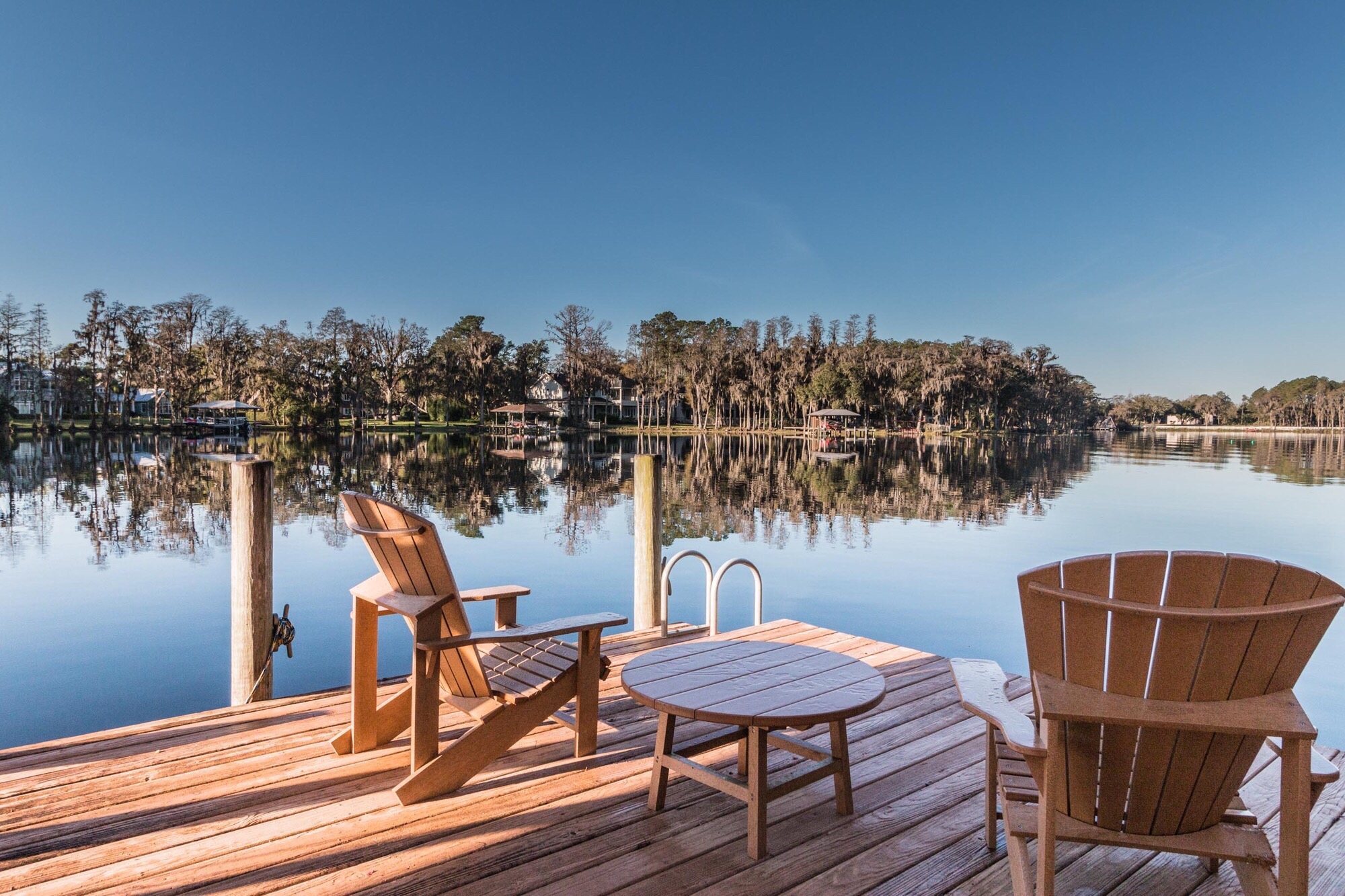 5 Great Places to Buy a Vacation Home
5 Great Places to Buy a Vacation HomeWant a vacation home for remote work or a fun getaway? Here are locations with median prices under $500K.
